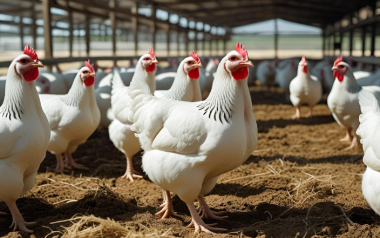07 Dec 2023
More than 11,000 turkeys slaughtered after bird flu was detected in Germany
Some 11,500 turkeys have been culled following an outbreak of the highly pathogenic H5N1 bird flu on a farm in eastern Germany..
Some 11,500 turkeys have been culled following an outbreak of the highly pathogenic H5N1 bird flu on a farm in eastern Germany, German authorities said on Friday.
The disease was confirmed on a farm in Ostprignitz-Ruppin, in the eastern state of Brandenburg, the Ministry of Health of the state of Brandenburg reported.
On November 22, what is believed to be the first case of bird flu in Germany this fall was reported.
Avian flu, which has led to the slaughter of hundreds of millions of birds in recent years, usually strikes in Europe during the autumn and winter. It has recently been detected in farms in several countries, including France, the Netherlands, Italy, Croatia and Hungary.
To combat the disease, which has disrupted supplies of poultry meat and eggs and sent prices soaring in some parts of the world in recent years, France launched a bird flu vaccination campaign in early October.
The need to cull birds in cases of avian influenza lies in the urgency of controlling the spread of the virus and mitigating the risk of possible transmission to humans. Avian influenza can have highly pathogenic strains that cause serious illness in poultry and, in some cases, can affect humans.
The culling of infected birds is a crucial measure to prevent the spread of the virus in poultry populations, reduce the risk of a pandemic and protect both public health and the poultry industry. Furthermore, the rapid elimination of infected birds contributes to preventing the evolution of the virus and eradicating disease foci, thus minimizing the economic and health impacts associated with avian influenza outbreaks.
News taken from: https://aristeguinoticias.com/








































